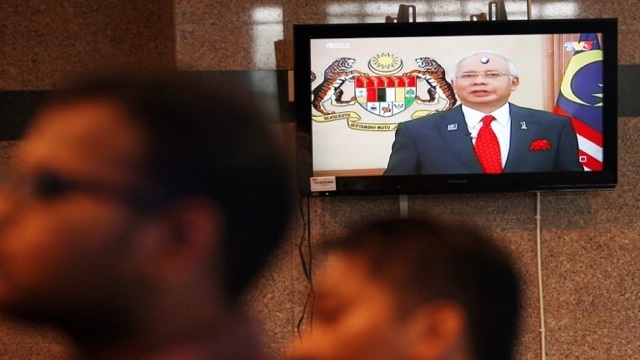SUMMARY
This is AI generated summarization, which may have errors. For context, always refer to the full article.

KUALA LUMPUR, Malaysia – Sarawak and neighboring Sabah didn’t get caught up in the political tsunami that swept Peninsular Malaysia in the March 2008 election.
But with independent polls suggesting a tense neck-and-neck race between the ruling National Front (NF) and the opposition coalition in Peninsular Malaysia, political analysts say that the 56 parliamentary seats in the two East Malaysian states on Borneo could determine which group emerges victorious in the national elections widely expected later this month (April).
Sabah and Sarawak, which account for a quarter of the seats up for grabs, have long been considered so-called “fixed deposit” states for Prime Minister Najib Abdul Razak’s NF coalition government, states whose support could effectively be taken for granted. Voters in these two states traditionally have a very parochial view on politics and prefer their state-based parties to the established national political organizations from Peninsular Malaysia. The constituencies in Sabah and Sarawak are also rural and hold few voters, conditions that make it easy for the well-funded NF to keep voters on its side.
Not anymore, say analysts and politicians from the two states.
Allegations of abuse of power and rampant corruption in the management of the state’s resources against top leaders are stoking widespread disenchantment with the NF’s coalition partners in Borneo. The bloody standoff between Malaysian security forces and a group of armed Filipino men that flared up in February in Sabah has also spread disquiet against the two state governments.
Public discontent
All this change is a result of some crafty campaigning by opposition parties in recent years. Multi-media tools, such as political websites and interactive radio networks, have become powerful weapons to disseminate well-documented cases of land grabs and irregularities in the awarding of contracts to groups and family members of the political elite in both states.
The opposition has also benefitted from some outside help. A widely followed whistleblower website, Sarawak Report, has been in the forefront of an anti-corruption campaign in the two states, exposing how the leaders of Sarawak and Sabah have been involved in the alleged illegal transfer of the state’s timber resources to family members. NF leaders have turned a blind eye to the paper trail of documents published by Sarawak Report, but analysts say that public discontent is spreading fast.
Opposition politicians are hoping to wrest control of 7 parliamentary seats in Sarawak and another 13 in Sabah, victories that would significantly alter the national political equation. Should the coming national election later deliver a hung parliament, leaders in Sabah and Sarawak would be open to wooing.
One likely carrot will be the long-standing agreements covering oil revenue. Currently, the two states only get 5% of revenue, and the remainder flows directly to federal government coffers. The opposition is promising to raise the share to 20% should it come to power.
Money has always been central in the rough and tumble world of Borneo politics, and this time around, the NF’s fixed deposit states appear ready to be cracked. – Rappler.com
Leslie Lopez was former Wall Street Journal correspondent in Malaysia, senior correspondent at the Straits Times (Singapore), and is now editor of The Edge Review, where this piece was first published.
Add a comment
How does this make you feel?
There are no comments yet. Add your comment to start the conversation.